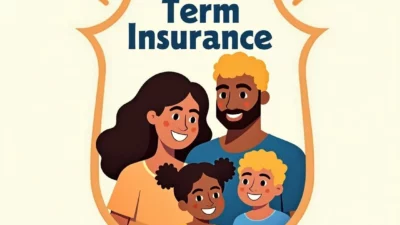Disability insurance for soon to be veterinarians offers protection in the event of an accident or illness. Whether the injury or illness has long- or short-term effects, the right coverage helps protect your investments and provides financial aid. Here is more information about how new veterinarians can find comprehensive disability coverage:
Find a Provider
During school or shortly after graduation, veterinarians should start their search for a disability insurance provider. A reputable provider offers comprehensive coverage for health, dental, vision, disability, and more. Insurance should be customized to meet your specific career needs, as veterinarians face risks that other occupations do not. Reliable providers provide competitive packages and connect you to field experts who offer consulting services.
Customize Your Policy
Providers offer various policy customization options. This allows you to get tailored coverage so you are not paying for protection you do not need. Here are some ways you can customize your policy:
Group Versus Individual Policies
An employer or company provides group policies, and the coverage ends when you leave that job. Individual policies are portable so that you can take them with you as your career changes. Individual policies provide customizable protection, which benefits veterinarians who face risks such as scratches, kicks, repetitive strain injuries, back pain, and more. When selecting an individual plan, you can adjust or add riders and choose coverage amounts.
Short Versus Long Term
Determine if you want short- or long-term coverage when looking at disability insurance for soon to be veterinarians. Short-term options only last a few months and help with temporary injuries or illnesses. This is beneficial in the event of a broken bone or when recovering from a zoonotic disease. Long-term disability insurance provides coverage for several years or until you retire. Lasting income protection supports you if you cannot work due to a debilitating injury while on the job.
Own-Occupation Versus Any-Occupation
One common customization is choosing between own-occupation and any-occupation policies. Own-occupation policies deem you disabled and provide coverage if you are unable to fulfil your regular job duties, such as performing surgeries or offering animal treatment. You receive benefits even if you can still work in another capacity. Any-occupation policies only view you as disabled if you cannot perform work in a job based on your educational training. If you are unable to perform surgery but can still teach or perform desk work, you may not qualify for this coverage. Determine the risks you will face at your veterinary clinic before selecting your policy. This helps verify that you receive adequate coverage in case of an accident.
COLA Versus No COLA Adjustment
Some insurance policies allow you to evaluate the types of expenses you deal with regularly and add a cost-of-living adjustment (COLA) rider. New veterinarians may have student loan fees or the costs of purchasing a new practice. They may also have home and family-related expenses that they need to cover, despite dealing with a disability. COLA riders help increase your benefits over time to account for inflation. This rider is a beneficial customization if you are disabled for an extended period, but still need to cover financial obligations.
Short Versus Long Elimination Periods
An elimination period is the amount of time you have to wait before your insurance benefits start. Shorter waiting periods may come with higher premiums, while longer waiting periods offer lower premiums. If you have some money set aside in a savings account, determining how long your savings will last can help you choose between a short- or long-term waiting period. Veterinarians who work at clinics with high-risk animals may benefit from shorter waiting periods, as they may require quick financial assistance. Clinics that handle domestic animals may not experience the same level of physical risk. This allows vets to wait longer for benefits to start.
Find Disability Insurance for Soon To Be Veterinarians
Evaluating policy customizations helps you find the right coverage options. If you are a recently graduated veterinarian who wants to protect your future income, start your search for a full-coverage insurance policy. Tailor the policy according to your specific risks and needs. A reputable insurance provider will help you negotiate benefits and build a plan that changes with your career or personal financial situation. Find a veterinarian-focused disability insurance provider today.

Lexy Summer is a talented writer with a deep passion for the art of language and storytelling. With a background in editing and content creation, Lexy has honed her skills in crafting clear, engaging, and grammatically flawless writing.



